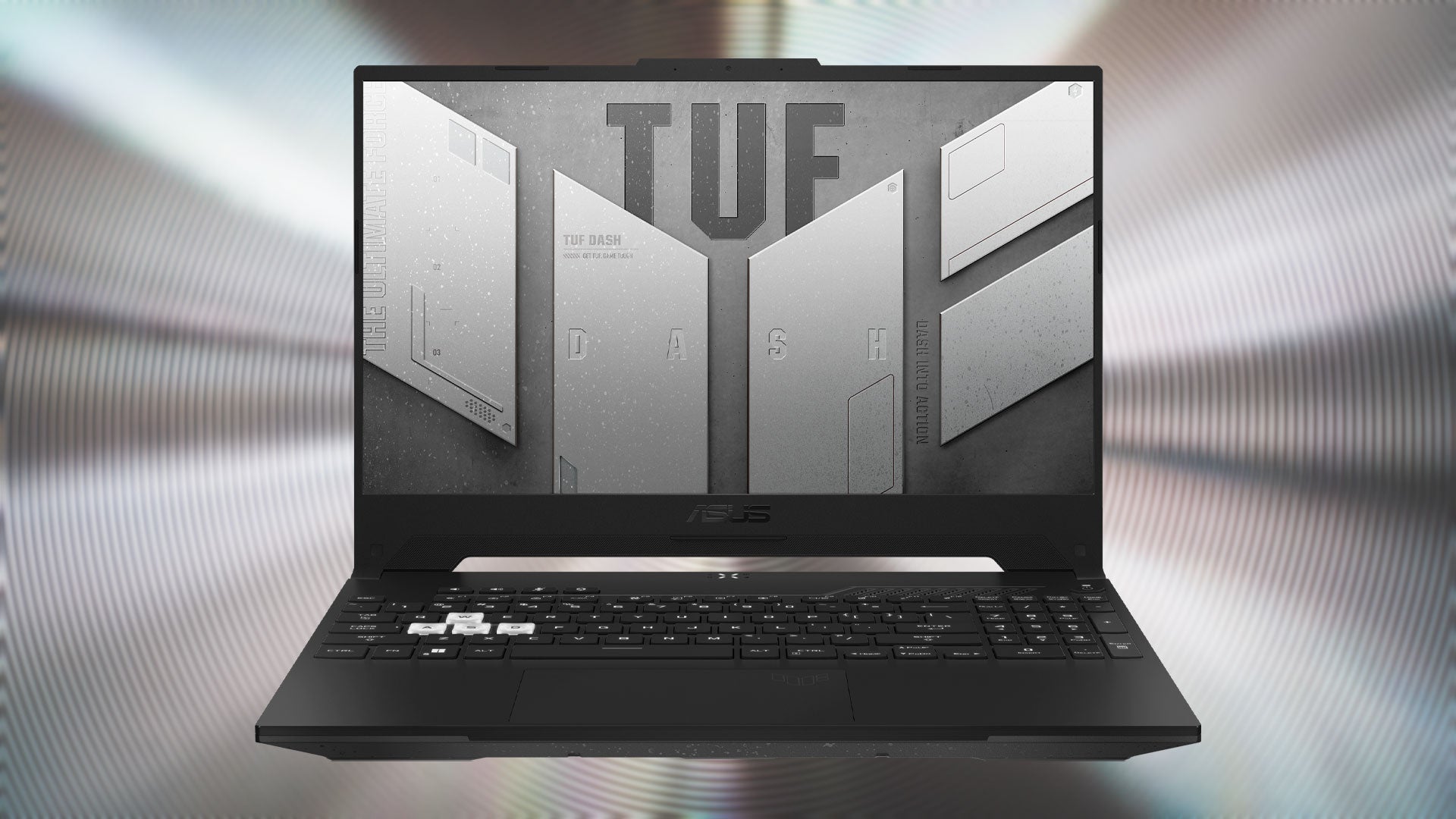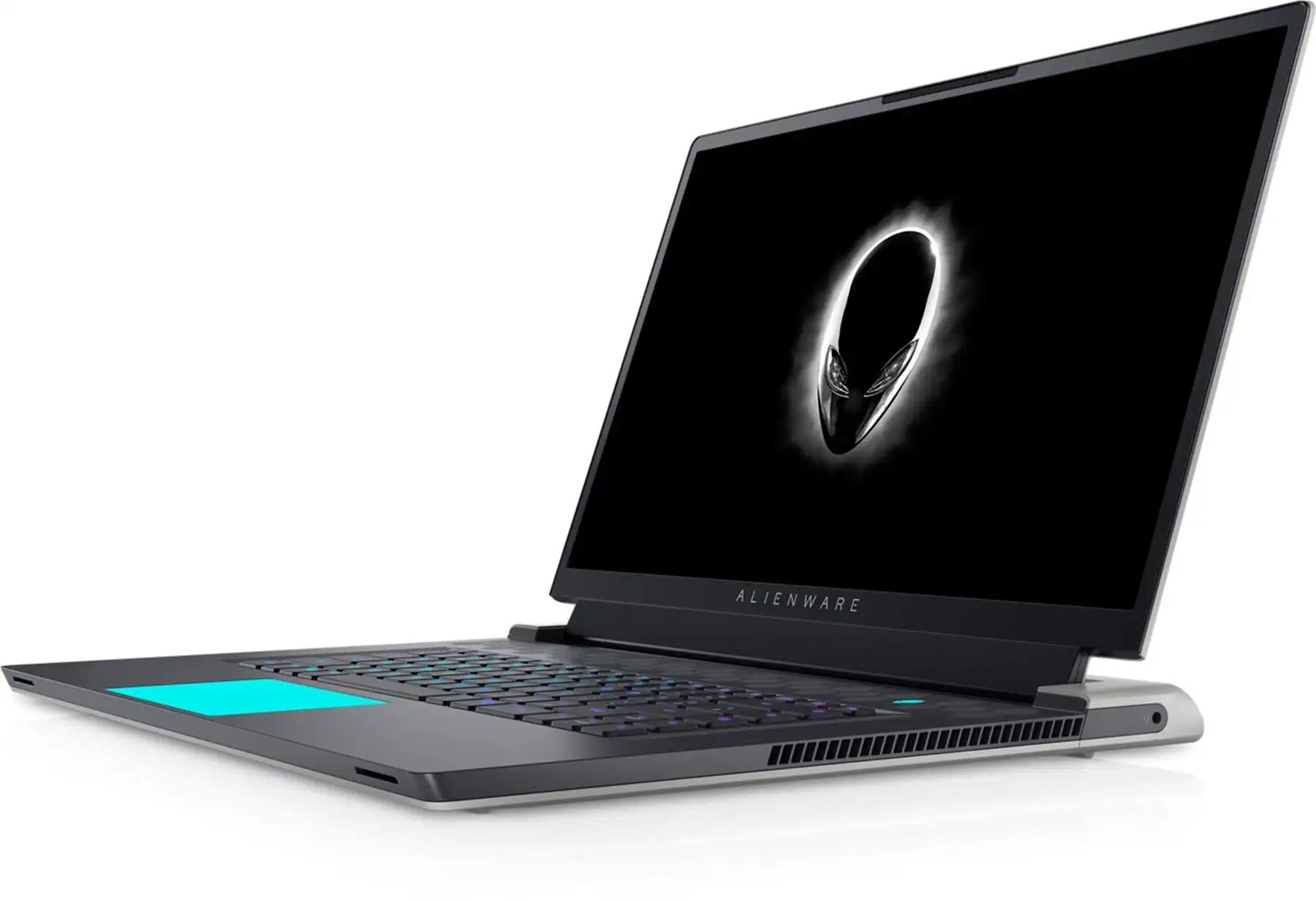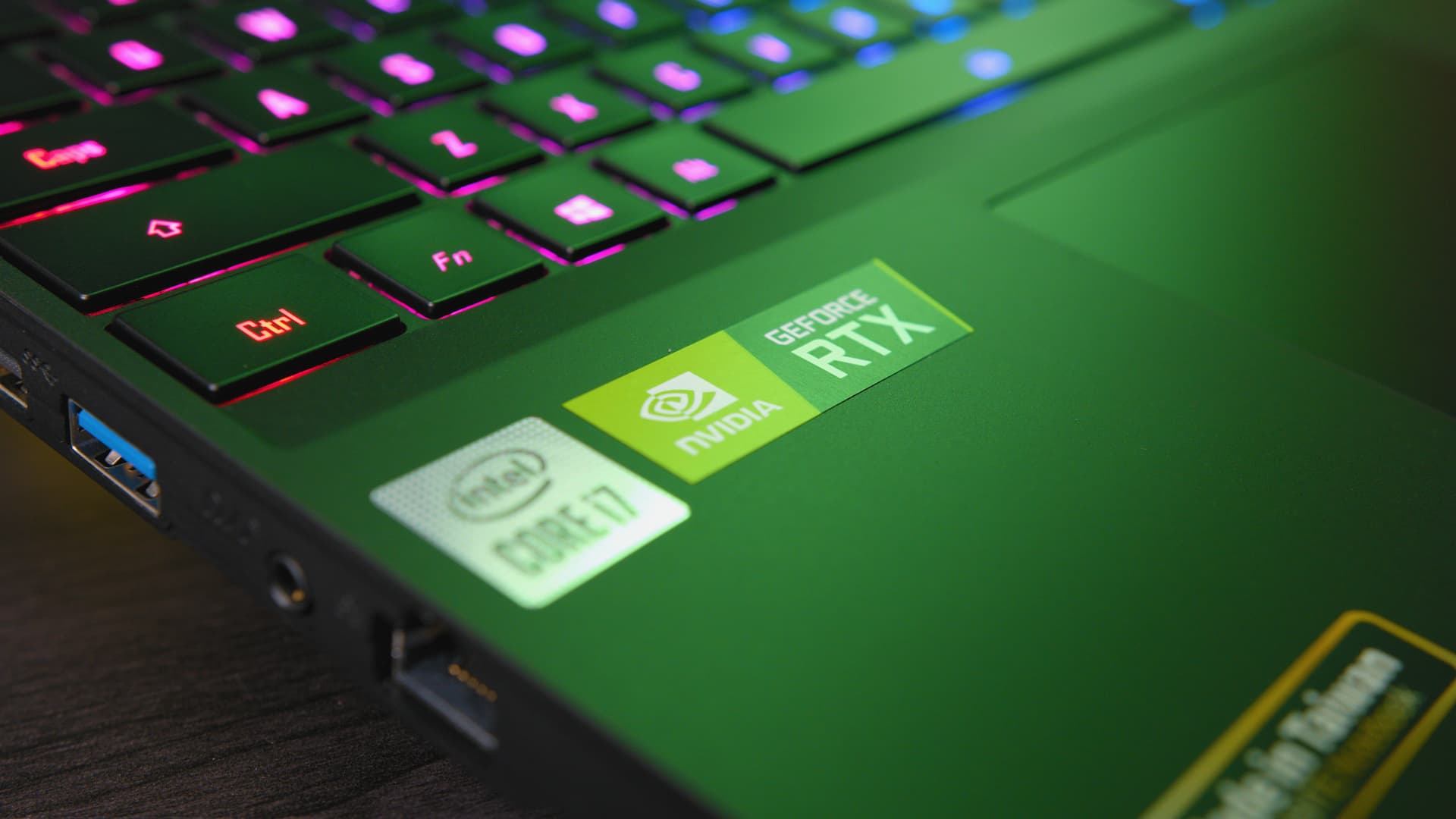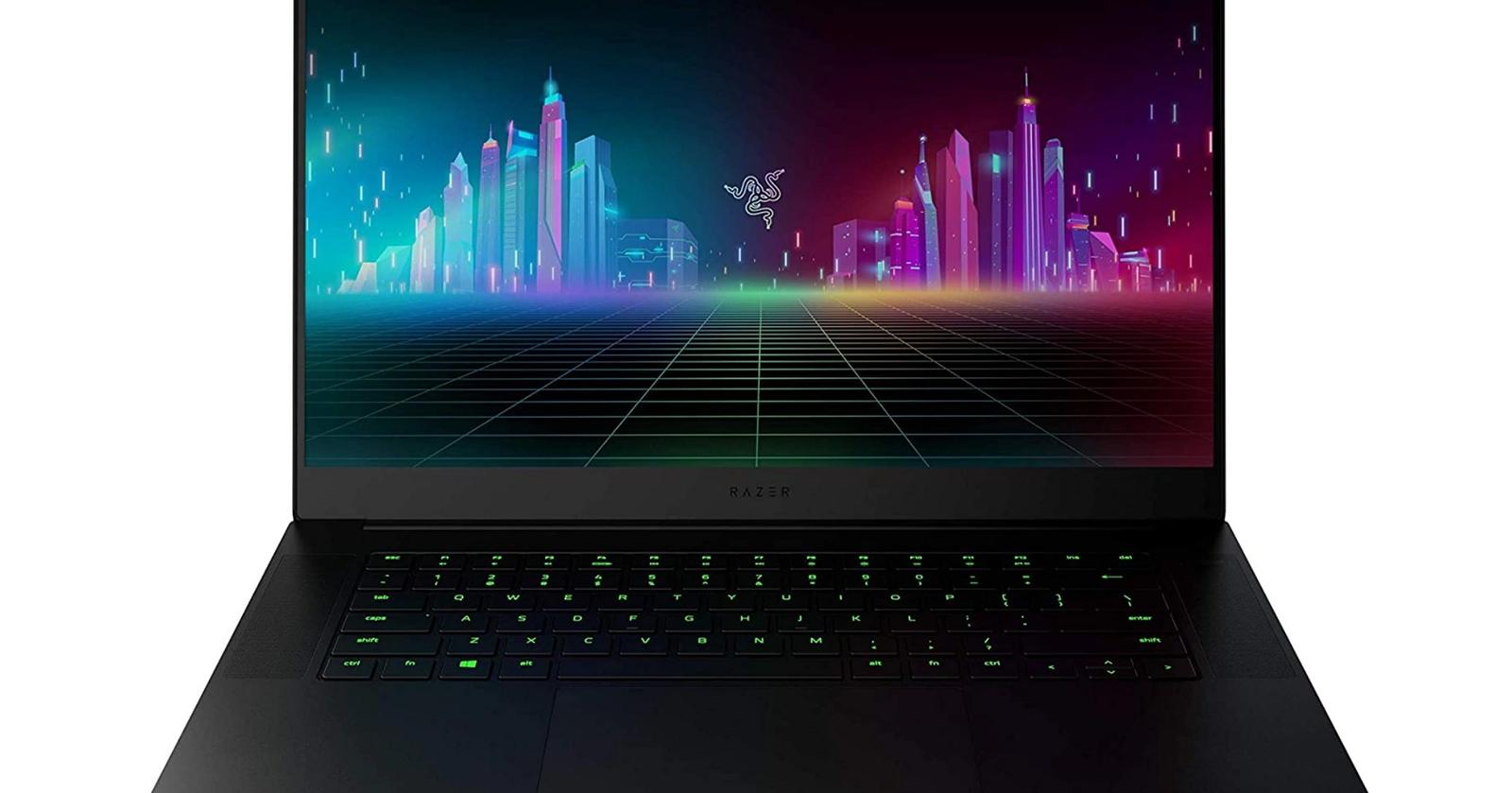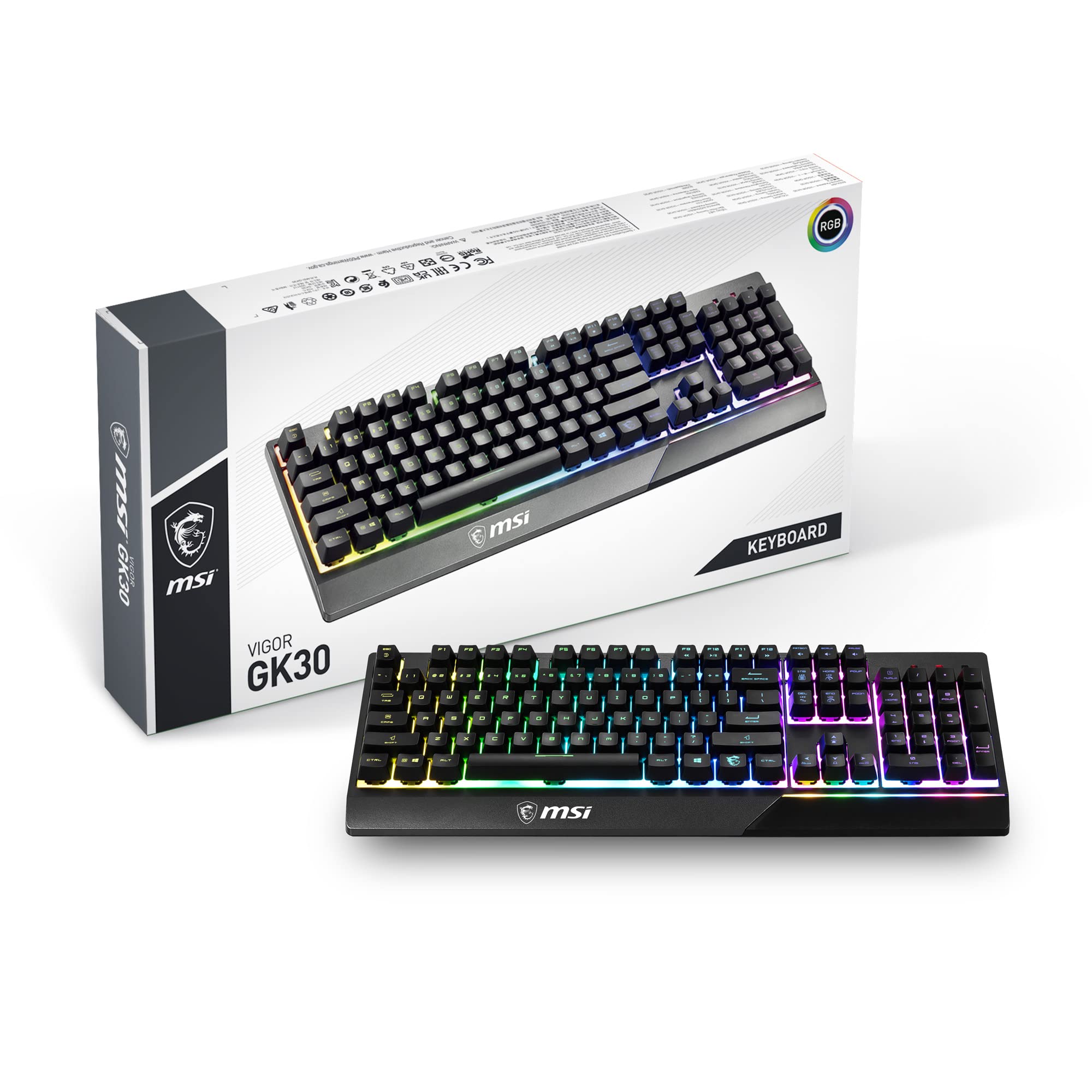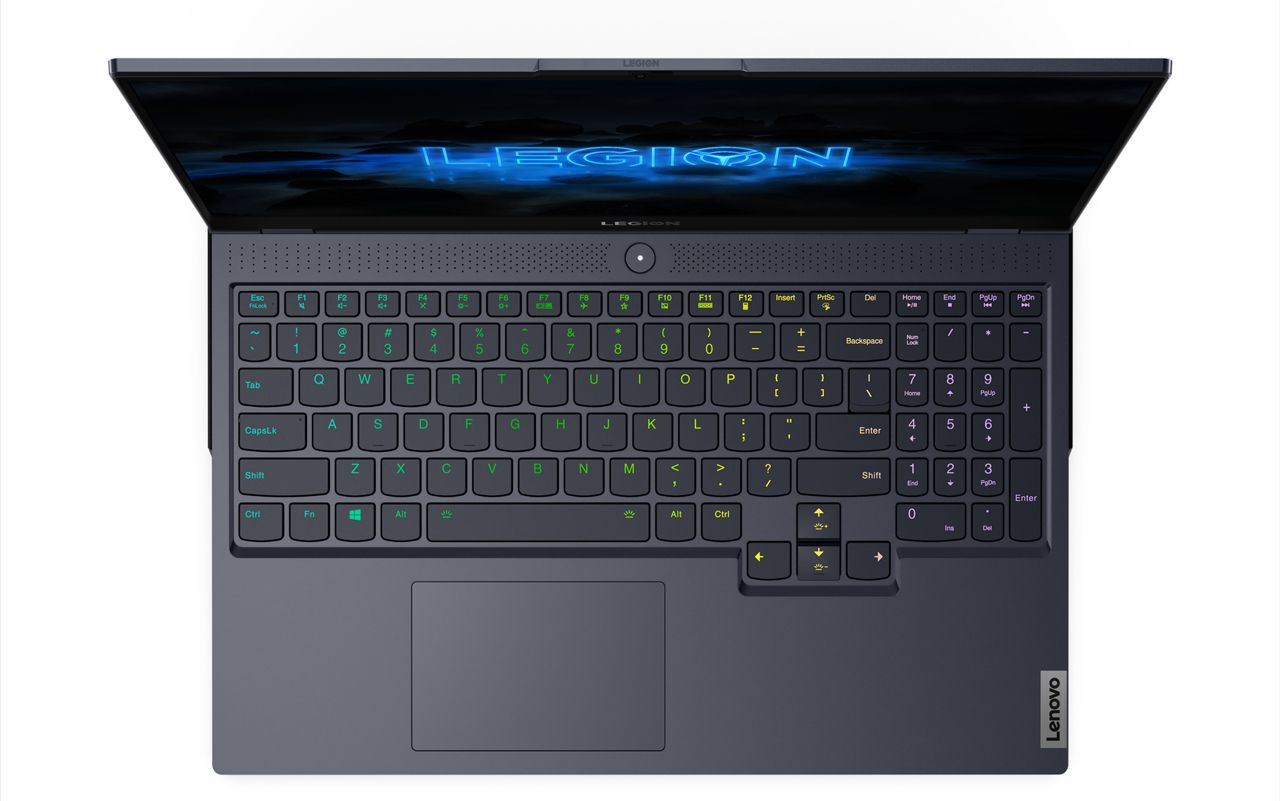Introduction
A gaming laptop is a valuable investment for avid gamers who seek the ultimate gaming experience on the go. With advancements in technology, gaming laptops have become more powerful and capable of running demanding games with breathtaking graphics. However, like any electronic device, a gaming laptop has a limited lifespan, and knowing when to replace it can be a crucial decision for gamers.
When it comes to determining the ideal time to replace your gaming laptop, there are several factors to consider. This article will explore these factors in detail and provide insights to help you make an informed decision. From performance and technological advancements to gaming trends and budget considerations, understanding these aspects can help you determine whether it’s time to upgrade your gaming arsenal.
Gaming laptops continue to evolve rapidly in terms of performance and specifications. Newer models often come equipped with the latest graphics cards, processors, and other components that offer significant improvements over their predecessors. These technological advancements can result in smoother gameplay, faster loading times, and better overall gaming experiences. As the demands of newer games increase, an older gaming laptop may struggle to keep up, impacting your gaming satisfaction.
In addition to technological advancements, it’s important to consider the evolving trends in the gaming industry. As game developers push the boundaries of graphics and gameplay, they often introduce features that require more resources to run smoothly. For example, virtual reality (VR) gaming has gained popularity in recent years, requiring high-end hardware to deliver an immersive VR experience. If you’re someone who wants to stay at the forefront of gaming technology and enjoy the latest gaming trends, it might be worth considering replacing your gaming laptop.
A key factor to keep in mind is the lifespan of a gaming laptop. On average, a well-maintained gaming laptop can last anywhere from 3 to 5 years before components start showing signs of wear and tear. After this period, various issues may arise, such as decreased performance, overheating, or compatibility problems with newer games. If you’ve had your gaming laptop for several years and are experiencing any of these issues, it could be a sign that it’s time to consider a replacement.
Factors to Consider When Deciding to Replace Your Gaming Laptop
Deciding whether to replace your gaming laptop can be a daunting task, as it involves weighing various factors. Here are some essential considerations to keep in mind when making this decision:
1. Performance and Technological Advancements: One of the primary factors to consider is the performance of your current gaming laptop. Are you experiencing lag, slow loading times, or difficulty running newer games? Technological advancements in gaming laptops occur at a rapid pace, and if your current laptop is struggling to keep up with the demands of modern games, it may be time to upgrade to a more powerful machine.
2. Gaming Trends and Requirements: Gaming trends evolve alongside technological advancements. If you’re an avid gamer who wants to stay current with the latest gaming trends, you’ll need a laptop that can support these new features. For example, if virtual reality, ray tracing, or cloud gaming are becoming popular, your current laptop may not have the necessary hardware to enjoy these advancements.
3. Gaming Laptop Lifespan: Consider the age of your gaming laptop. Like any electronic device, laptops have a finite lifespan. After a certain number of years, components may start to degrade, leading to decreased performance and reliability. If your laptop is several years old and you frequently encounter issues such as crashes, overheating, or hardware malfunctions, it’s a sign that it may be time for an upgrade.
4. Signs of Wear and Tear: Look out for physical signs of wear and tear on your laptop. Cracked screens, faulty keyboards, or worn-out ports can significantly impact your gaming experience. If these issues persist despite attempted repairs, it may be more economical to invest in a new laptop instead of repeatedly fixing the same problems.
5. Budget Considerations: Replacing a gaming laptop can be a costly affair, so it’s essential to consider your budget. Determine how much you’re willing to spend and research laptops that fit within that price range. Remember to strike a balance between your budget and the performance and features you desire.
6. Upgrading Options: Before completely replacing your gaming laptop, explore the possibility of upgrading certain components. Upgrading the RAM, SSD, or graphics card can give your laptop a performance boost without the need for a full replacement. However, be aware that not all laptops are easily upgradable, so consider this factor when making your decision.
By carefully evaluating these factors, you can make an informed decision about whether it’s the right time to upgrade your gaming laptop. Remember, it’s essential to strike a balance between your gaming needs, budget, and the potential benefits offered by a new and improved gaming laptop.
Performance and Technological Advancements
When it comes to gaming, performance is crucial for a smooth and enjoyable experience. Technological advancements in gaming laptops play a significant role in determining their performance capabilities. If your current gaming laptop is lagging behind in terms of performance, it may be a signal that it’s time to consider a replacement.
Newer gaming laptops often come equipped with the latest generation processors, high-performance graphics cards, and faster memory. These hardware upgrades can significantly enhance gaming performance by allowing for faster loading times, smoother gameplay, and better graphics rendering. For example, newer graphics cards such as the NVIDIA RTX series include advanced features like real-time ray tracing, delivering more realistic lighting effects in games.
In addition to raw processing power, gaming laptops benefit from advancements in cooling technology. Overheating can lead to performance throttling and reduced lifespan of components. In recent years, laptop manufacturers have developed improved cooling systems to keep temperatures under control even during intense gaming sessions. Features like larger heat sinks, vapor chambers, and more efficient fan designs help dissipate heat effectively, ensuring optimal performance and longevity of your gaming laptop.
Another area where technological advancements have made significant strides is display technology. Many newer gaming laptops feature high refresh rate displays, typically 144Hz or even 240Hz, compared to the standard 60Hz. Higher refresh rates enable more fluid and responsive gameplay, allowing you to react faster to in-game events. Additionally, advancements in display resolution, such as 4K or QHD, offer more immersive visuals and sharper details for a truly captivating gaming experience.
Storage is yet another aspect that has seen improvements in recent years. Gaming laptops now often come with solid-state drives (SSDs) instead of traditional hard drives. SSDs offer faster data access speeds, resulting in reduced game loading times and improved overall system responsiveness. Some gaming laptops even incorporate PCIe NVMe SSDs, which provide even faster read and write speeds, further enhancing the gaming experience.
When considering whether to upgrade your gaming laptop, it’s essential to evaluate the specific technological advancements that new models offer. Identify which features and improvements align with your gaming preferences and priorities. If your current laptop lacks the necessary performance or lacks the latest technological advancements that significantly impact your gaming experience, it may be time to explore the options available with newer models.
Keep in mind, however, that technology continues to advance rapidly, and there will always be newer and more powerful models on the horizon. Strike a balance between your needs and what is currently available within your budget. Ultimately, choosing a gaming laptop that offers the right balance of performance, technological advancements, and affordability will ensure you can enjoy your favorite games to the fullest.
Gaming Trends and Requirements
Gaming is an ever-evolving industry, with new trends and requirements constantly shaping the experiences developers aim to deliver. Staying current with these trends can greatly influence the decision of whether to replace your gaming laptop.
One significant trend in recent years is the rise of virtual reality (VR) gaming. VR technology provides a more immersive and interactive gaming experience, allowing players to feel as if they are part of the virtual world. However, VR gaming requires powerful hardware to render the detailed graphics and maintain high frame rates needed for a smooth VR experience. If you’re interested in experiencing the latest in gaming technology, and your current laptop lacks the necessary hardware specifications for VR gaming, it may be time to upgrade to a more capable device.
Another trend in gaming is the increasing popularity of games with realistic graphics and life-like visuals. Developers are now leveraging advanced graphics features, such as real-time ray tracing, to create stunningly realistic lighting and reflections in games. These features require dedicated hardware support, such as NVIDIA’s RTX graphics cards, to achieve the desired level of visual fidelity. If you’re passionate about visually stunning games and you find that your current laptop is struggling to run them smoothly or can’t support these advanced graphics technologies, upgrading to a more powerful gaming laptop would ensure you can fully enjoy the latest gaming experiences.
Game developers also often raise the minimum system requirements for their games as they take advantage of more powerful hardware. Newer games may demand higher processor speeds, larger amounts of RAM, and more powerful graphics cards. If your current laptop fails to meet the recommended system requirements for the latest game releases, upgrading to a more capable gaming laptop will allow you to play these games without compromising on performance or visual quality.
Cloud gaming has emerged as another notable trend in recent years, offering gamers the ability to stream games directly to their laptops without the need for powerful local hardware. Services such as Google Stadia, NVIDIA GeForce Now, and Microsoft’s xCloud enable players to access and play high-quality games via an internet connection. If you’re interested in the convenience and accessibility of cloud gaming, it’s essential to ensure that your current laptop has the necessary specifications and internet connectivity to support these streaming services. Upgrading to a more capable gaming laptop that meets the recommended requirements can enhance your cloud gaming experience.
By staying up to date with the latest gaming trends and requirements, you can make an informed decision about whether it’s time to replace your gaming laptop. Consider your gaming preferences, the trends shaping the industry, and the specifications needed to support these latest gaming experiences. Upgrading to a laptop that aligns with current gaming trends will ensure you can fully immerse yourself in the exciting world of modern games.
Gaming Laptop Lifespan
Understanding the lifespan of a gaming laptop is crucial when deciding whether it’s time to replace it. While the lifespan can vary depending on various factors, such as usage, maintenance, and quality of components, it’s important to know the general expectations.
On average, a well-maintained gaming laptop can last anywhere from 3 to 5 years before it starts showing signs of wear and tear. During this time, the laptop’s components, such as the processor, graphics card, and storage, will progressively become outdated compared to newer models. This may result in decreased performance and difficulty running newer, more demanding games that require more powerful hardware.
Over time, gaming laptops can experience issues such as overheating, system crashes, or random shutdowns. These problems may indicate that the laptop is reaching the end of its lifespan. Components can wear out, fans can become clogged with dust, and thermal paste can dry up, all leading to reduced performance and potential hardware failures. If you’re experiencing these issues frequently, it may be a sign that it’s time to consider investing in a new gaming laptop.
Another aspect to consider regarding the lifespan of a gaming laptop is software and driver support. As technology advances, manufacturers tend to focus on providing updates and support for newer models. Support for older models may gradually diminish, resulting in limited driver updates, compatibility issues with newer games, and difficulties in obtaining maintenance and repairs.
It’s important to note that proper maintenance and care can help extend the lifespan of a gaming laptop. Regularly cleaning the laptop’s vents and fans to ensure proper airflow, keeping the system and software up to date, and using a cooling pad can all contribute to its longevity. However, even with diligent maintenance, there will come a point where the laptop’s performance and capability will lag behind the requirements of newer games.
Ultimately, the decision to replace a gaming laptop should be based on its overall performance, the demands of current and upcoming games, and your personal gaming preferences. If your current laptop is struggling to meet your gaming needs or is showing signs of wear after several years of use, it may be worth considering an upgrade to a newer model with improved performance and features.
Remember to consider the timing of your purchase as well. If you’re on the cusp of a new generation of gaming technology or expecting significant advancements in gaming laptops, it might be worth waiting a bit longer before making a replacement decision.
By being aware of the average lifespan of a gaming laptop and assessing the current condition of your laptop, you can make an informed decision about whether it’s time for an upgrade to keep up with the evolving gaming landscape.
Signs It Might Be Time to Replace Your Gaming Laptop
As your gaming laptop ages, there are telltale signs that indicate it might be time to consider a replacement. Recognizing these signs can help ensure you maintain an optimal gaming experience. Here are some key indicators that it might be time to upgrade your gaming laptop:
1. Decreased Performance: If you notice a significant drop in performance, such as increased lag, slower loading times, or difficulty running newer games on lower settings, it’s a sign that your laptop may be struggling to keep up with the demands of modern games. An older graphics card or outdated processor may no longer meet the required specifications for optimal gaming.
2. System Crashes and Overheating: Frequent system crashes, sudden shutdowns, or increased overheating are signs that your gaming laptop’s components may be reaching their limits. These issues can be indicative of hardware failures, such as a malfunctioning graphics card or insufficient cooling. If these problems persist despite proper maintenance, it may be time for an upgrade.
3. Compatibility Issues: If you find that your gaming laptop is becoming incompatible with newer games or unable to run them at their recommended settings, it’s a clear indication that your current hardware may no longer be able to meet the demands of these games. Incompatibility issues can prevent you from fully enjoying the latest gaming experiences.
4. Outdated Features and Technologies: As technology advances, new features and technologies become standard in gaming laptops. If your current laptop lacks essential features, such as high-refresh-rate displays, Thunderbolt ports for external device compatibility, or support for newer connectivity standards, it may be time to upgrade to a more future-proof system.
5. Limited Software and Driver Support: As gaming laptop manufacturers focus on newer models, support for older devices may diminish over time. This can result in limited driver updates, compatibility issues, and difficulties obtaining maintenance and repairs. If your laptop is no longer receiving timely software updates or if obtaining replacement parts becomes challenging, it may be worth considering a replacement.
6. Aesthetic and Physical Wear: Physical wear and tear can impact both the performance and visual appeal of your gaming laptop. Cracked screens, worn-out keyboards, loose hinges, or damaged ports can hinder your gaming experience. If these issues persist despite attempts to repair them, it may be more cost-effective to invest in a new laptop rather than continuing to deal with compromised functionality.
Keep in mind that the decision to replace your gaming laptop is influenced by a combination of factors. Assess the overall condition of your laptop, the performance limitations, compatibility issues with newer games, and your personal gaming needs. If multiple signs indicate that your laptop is unable to meet your gaming expectations, it may be time for an upgrade to ensure you can fully enjoy the latest gaming experiences.
Budget Considerations
Replacing your gaming laptop is a significant investment, and considering your budget is essential when making this decision. While upgrading to a newer model can offer improved performance and features, it’s important to find a balance between your gaming needs and financial constraints.
Start by evaluating your budget and determining how much you are willing to spend on a new gaming laptop. Set a realistic price range that aligns with your financial situation and gaming requirements. Take into account that gaming laptops with higher specifications and the latest technologies will typically have a higher price tag.
Research different laptop models within your budget and compare their specifications, performance, and reviews. Look for laptops that offer a good balance of performance, value for money, and longevity. It may also be worth considering slightly older models that still meet your gaming requirements but have reduced prices due to newer releases.
Consider the specific aspects of gaming that are most important to you. Are you focused on high-end graphics, fast loading times, or smooth multiplayer experiences? Prioritize your budget allocation accordingly. Look for laptops that excel in those areas while still falling within your price range.
Keep in mind that upgrading individual components of your existing gaming laptop may be a more cost-effective option than replacing the entire device. If your laptop’s performance is lacking in certain areas, consider upgrading the RAM, storage, or graphics card to improve its capabilities. However, ensure that the upgrade options are compatible with your current laptop and that the cost of upgrading doesn’t outweigh the benefits of a new purchase.
When considering your budget, remember to account for additional expenses such as extended warranties, gaming peripherals, and software purchases. These additional costs can add up and impact your overall budget. It’s essential to factor in all potential expenses to make an informed decision.
Lastly, be aware of seasonal sales, discounts, and promotions that may help stretch your budget further. Keeping an eye out for special offers can help you secure a better deal on a higher-spec gaming laptop that might otherwise be out of your budget.
By carefully assessing your budget, researching different laptop models, considering component upgrades, and taking advantage of any available discounts, you can make a well-informed decision regarding the replacement of your gaming laptop. Balancing your gaming needs with your financial situation will ensure that you make a purchase that meets your expectations without causing unnecessary financial strain.
Upgrading Options Instead of Replacing
When it comes to improving the performance and capabilities of your gaming laptop, upgrading certain components can be a viable alternative to a full replacement. Upgrading allows you to enhance specific areas of your laptop without the need for a complete overhaul, potentially saving you money while still achieving noticeable improvements.
One of the most common upgrade options is increasing the amount of RAM. Upgrading to a higher capacity RAM module or adding additional RAM can improve multitasking capabilities and provide smoother performance, especially when running resource-intensive games or applications. This upgrade is relatively straightforward and can often be done by simply replacing the existing RAM modules with higher-capacity ones that are compatible with your laptop.
Another crucial component that can significantly impact gaming performance is the storage drive. Upgrading from a traditional hard disk drive (HDD) to a solid-state drive (SSD) can result in faster boot times, reduced game loading times, and improved overall system responsiveness. SSDs offer faster data access speeds and are particularly beneficial for open-world games with large map sizes and frequent data streaming. Consider replacing the primary storage drive with an SSD or adding an SSD as a secondary drive for faster game installations and improved system performance.
If your gaming laptop is struggling with graphics-intensive games, consider upgrading the graphics card. Some gaming laptops allow for graphics card upgrades, while others may have dedicated external graphics card options or graphics amplifier compatibility. Upgrading to a more powerful graphics card can significantly enhance your gaming experience, allowing you to run games at higher resolutions, frame rates, and graphic settings.
Don’t overlook the importance of a quality cooling system for maintaining optimal performance. Upgrading the cooling system with improved thermal paste, better fans, or additional cooling solutions can help dissipate heat more effectively, preventing thermal throttling and enhancing the overall longevity of your laptop.
Upgrading software and drivers is also crucial for maximizing your gaming laptop’s performance. Ensure that your operating system, drivers, and gaming software are up to date. Updated drivers often include performance optimizations and bug fixes that can improve game compatibility and overall stability.
While upgrading specific components can provide noticeable improvements to your gaming laptop, it’s essential to consider the limitations and compatibility of your existing hardware. Some laptops have limited upgrade options due to their design or proprietary components. It’s important to check the manufacturer’s documentation or consult with a professional to ensure compatibility before purchasing any upgrade components.
Consider the cost of the upgrades compared to the performance gains you expect to achieve. In some cases, especially with older laptops or laptops with limited upgrade options, the cost-to-performance ratio may not justify the upgrades, and it might be more beneficial to invest in a new gaming laptop that meets your desired specifications.
By carefully evaluating your gaming laptop’s upgrade options and considering the compatibility, cost, and performance gains, you can make an informed decision about whether upgrading specific components is a more suitable option than a full replacement. Upgrading can offer a cost-effective way to enhance your gaming experience while extending the lifespan of your current gaming laptop.
Conclusion
Deciding when to replace your gaming laptop is a crucial decision that requires careful consideration of multiple factors. By evaluating performance and technological advancements, gaming trends and requirements, gaming laptop lifespan, signs that indicate the need for replacement, and budget considerations, you can make an informed decision that aligns with your gaming preferences and financial situation.
Technological advancements in gaming laptops, such as faster processors, improved graphics cards, and advanced cooling systems, can significantly enhance gaming performance and provide a more immersive experience. Staying up to date with gaming trends and requirements allows you to enjoy the latest features, such as virtual reality gaming, realistic graphics, and cloud gaming.
Understanding the typical lifespan of a gaming laptop and recognizing signs of wear and tear can help you determine when it’s time for a replacement. Overheating, system crashes, compatibility issues, and physical wear can all indicate that your current laptop may no longer meet your gaming needs and necessitate an upgrade.
Budget considerations are essential in making a replacement decision. Assess your financial situation, research different laptop models within your price range, and consider potential component upgrades as a cost-effective alternative. It’s important to strike a balance between your gaming requirements, future-proofing, and affordability.
In some cases, upgrading specific components such as RAM, storage, and graphics cards can provide noticeable improvements to your gaming laptop’s performance. Evaluate the compatibility and cost-to-performance ratio of these upgrades to determine if it’s a suitable option for your specific situation.
Ultimately, the decision to replace your gaming laptop should be based on a combination of these factors, tailored to your individual needs and circumstances. Regularly reassessing your gaming requirements and keeping up with the latest advancements in technology will help ensure that you can enjoy a seamless and immersive gaming experience.
Whether you decide to upgrade specific components or invest in a new gaming laptop, the goal is to maximize your gaming enjoyment and stay at the forefront of the gaming world. Consider your options carefully, weigh the pros and cons, and make a decision that aligns with your gaming aspirations and budget.









